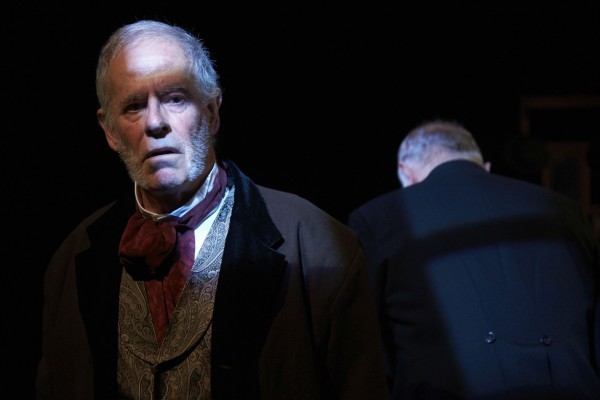
The eccentric English aristocrat has become almost a cliché. We seem to expect, hope even, that our hereditary lords and masters are a bit barmy. Too much money, too much time on their hands, a lifetime of being indulged – not to mention the occasional bout of inbreeding – can result in the mind being seriously muddled. While Downton Abbey depicts the acceptable, sensible side of the aristocracy, The Underground Man gives us an insight into the looney side.
Based on Mick Jones’ 1997 novel, Nick Wood’s adaptation tells the story of William John Cavendish Scott-Bentinck, 5th Duke of Portland (1800-1879). Wealthy beyond compare and owning vast tracts of London north of Oxford Street (think anything beginning with Cavendish or Portland) he had the wherewithal to indulge his foibles, high on the list of which was digging tunnels (hence the title) under his country estate at Welbeck Abbey in Nottinghamshire. He lived in total isolation in the house and, although kind and caring towards his staff, they were not allowed to acknowledge him or tip their hats. His only contact was his butler.
Despite, or possibly because of his riches, the madcap Duke was not a happy man and was haunted by what he called The Floating Boy, his point of contact with whom was through a monkey doll. It wasn’t until the end of the play that we learned more of this phenomenon when its significance, and perhaps the reasons for the Dukes disturbed mind, were explained.
The basis of the play is really no more than an extended anecdote and went on rather too long. I spent most of the time wondering where it was all leading and it wasn’t until the denouement in the last five minutes that the answer was revealed. I think that point should have been reached a lot sooner – or at least some indication that there was going to be a point – and possibly have had more made of it when it did finally arrive.
That said, it was a entertaining evening. In many ways it reminded me of The Woman in Black but without the menace. It shared much common ground – the world of spirits, a sprawling remote house, treacherous incoming tides, an accident with a carriage and a lost child. The format was similar too – a two-hander with one actor playing the main character and the other playing all the rest.
Mick Jasper was excellent as the long-suffering butler/valet Clement, also taking on the mantle of the local, equally odd vicar, the blind bone setter and other bits and pieces. Iain Armstrong was convincing as the Duke but could perhaps have afforded a bit more strangeness. Incidental music and occasional clever sound effects were provided by onstage accordionist Nigel Waterhouse.
I think more could have been made of the production by way of lighting and other effects. There was very little atmosphere or feeling of weirdness and the play was often rather flat – but possibly this would be alleviated with the judicious pruning of twenty minutes playing time. A fascinating story and a decent enough play, this production could easily have been a lot better with the application of a bit more imagination. ★★★☆☆ Michael Hasted 30th October 2016

